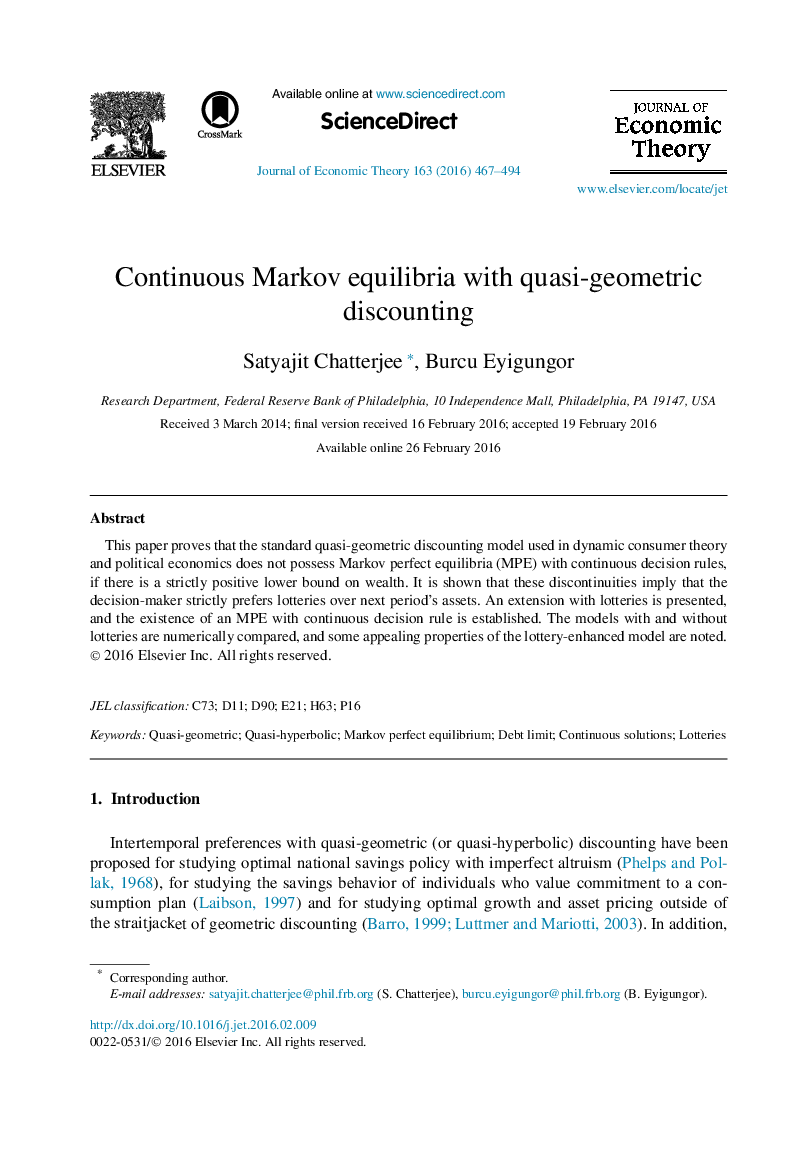| Article ID | Journal | Published Year | Pages | File Type |
|---|---|---|---|---|
| 956680 | Journal of Economic Theory | 2016 | 28 Pages |
Abstract
This paper proves that the standard quasi-geometric discounting model used in dynamic consumer theory and political economics does not possess Markov perfect equilibria (MPE) with continuous decision rules, if there is a strictly positive lower bound on wealth. It is shown that these discontinuities imply that the decision-maker strictly prefers lotteries over next period's assets. An extension with lotteries is presented, and the existence of an MPE with continuous decision rule is established. The models with and without lotteries are numerically compared, and some appealing properties of the lottery-enhanced model are noted.
Related Topics
Social Sciences and Humanities
Economics, Econometrics and Finance
Economics and Econometrics
Authors
Satyajit Chatterjee, Burcu Eyigungor,
